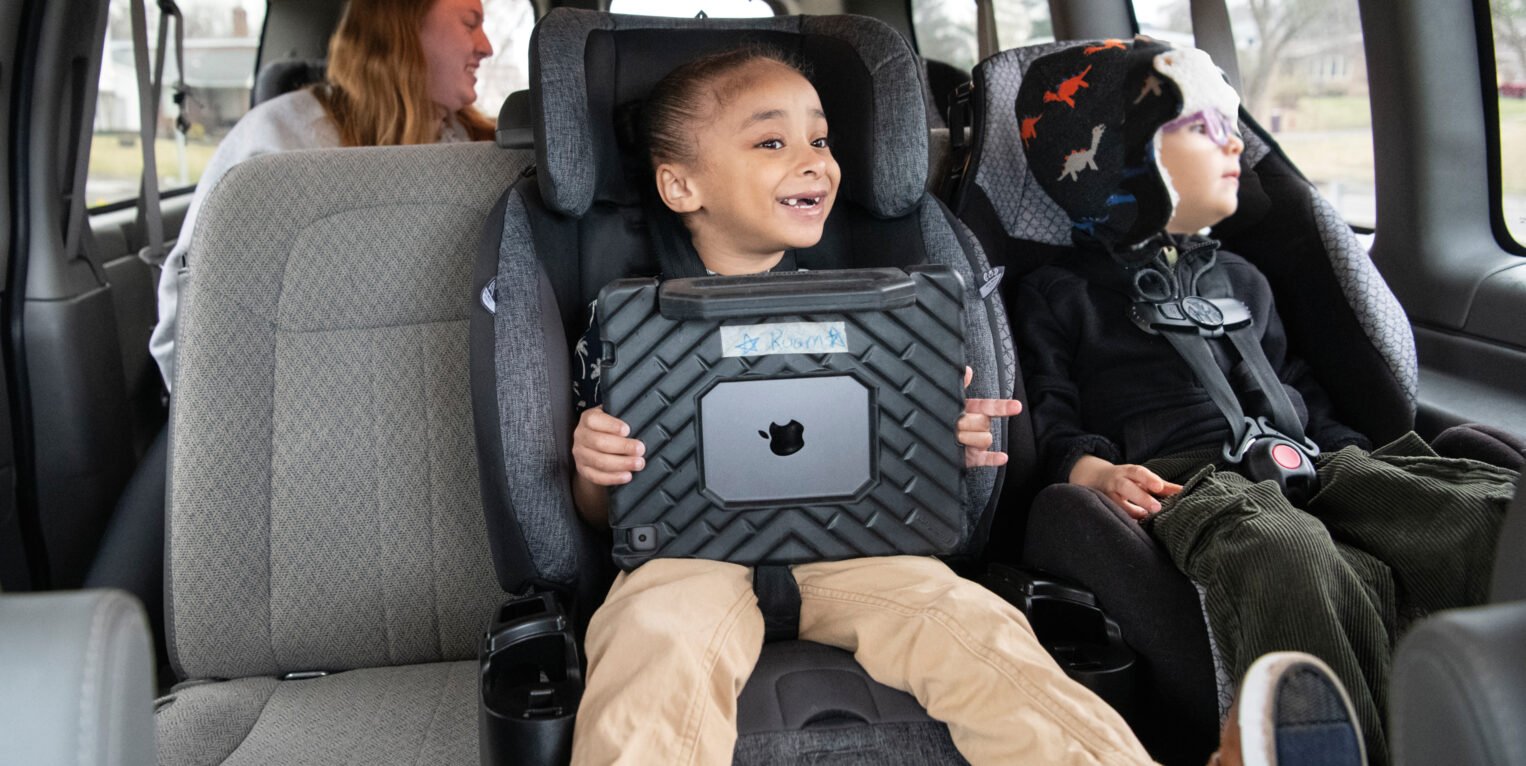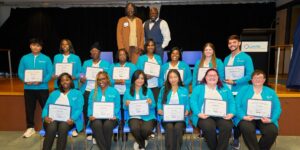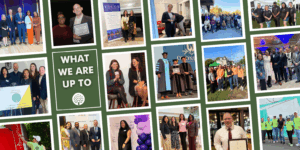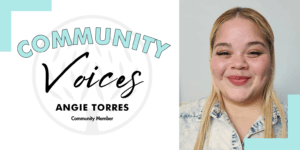
New Wheels, New Worlds: Jowonio School Expands Inclusive Learning
Pictured above: Mohammed (left) sits in one of Jowonio’s new vans. | Photo by: Ben Cleeton
Mohammed Stokes is a bright, curious child who enjoys playtime and ice cream as much as anyone his age. But when he was just two years old, his mother, Mel Ibrahim, noticed something different — he wasn’t making eye contact or engaging with others like most toddlers.
Uncertain but instinctively aware, Ibrahim sought answers. Doctors often dismissed her concerns, but as Mohammed’s behaviors intensified, the urgency for a diagnosis — and support — grew. Eventually, he was diagnosed with level three autism.
“There was a time when children with autism and other disabilities were practically invisible,” Ibrahim said. “Getting him to use language and connect with others in school felt impossible.”
After trying several preschools without success, Ibrahim enrolled Mohammed at Jowonio preschool, where inclusive, individualized learning is the foundation of its mission.
Derived from the Onondaga Nation language, Jowonio means “to set free” — a name that reflects the school’s vision to provide model inclusive programs for young children, where diversity is celebrated and all are free to learn and grow.
Jowonio welcomes students with a wide range of abilities and developmental needs, offering a play-based curriculum grounded in whole-child development. Classrooms are supported with the staffing, modifications and resources needed to ensure every child can fully participate.
“We don’t start with the question of if, we start with how,” said Lori Saile, Jowonio’s director. “We build access into every part of the program — so every child can grow socially, emotionally and academically in a space that recognizes and supports their unique potential.”
A key part of that access includes community-based learning. Field trips to parks, nature trails, grocery stores and cultural sites are built into the curriculum to spark joy and reinforce classroom themes in real-world settings. But for children with disabilities, accessing those experiences can be difficult without the right tools.
That’s why we provided a Community Grant to Jowonio to purchase one of two new GMC Savana vans, expanding access to field trips and school events for more students and their families. Each van is outfitted with special equipment to ensure accessibility for every child, opening doors for students who might otherwise be excluded from sharing the experiences with their peers.
“These vans are more than just vehicles — they’re the keys to introducing our children to the excitement and beauty of Central New York,” Saile said.
The vans also help Jowonio reach families who lack reliable transportation. Social workers can now pick up parents and caregivers so they can attend school functions and connect with their child’s learning experience.
“There are children who otherwise wouldn’t be able to go on a field trip,” said Saile. “If parents can’t afford to get there, they won’t. If a child has a physical disability or behavioral need and there’s not enough support, they can’t. These vans make access possible — for every child and every family.”
For Mohammed, that access has been transformative. Within days of starting at Jowonio, Ibrahim saw changes.
“The immediate shift from structured learning to play-based learning made Mohammed feel comfortable,” she said. “I’ve seen immense progress — not only in his communication, but in his personality. I’m eternally grateful.”
Jowonio serves more than 150 students and continues to be a leader in inclusive early childhood education. It partners with 23 school districts and works alongside the Early Childhood Alliance to strengthen inclusive training and practices across New York State and Onondaga County.
The school also advocates for more accessible community play spaces and collaborates with local leaders to build environments where every child can safely and fully participate.
As Saile explained, “Playgrounds and parks need to be designed so that all children — not just some — can engage in the joy of peer connection. It’s not enough to have accessible equipment if it isolates kids instead of including them.”
Jowonio’s model extends beyond its walls, with alumni families and educators championing inclusion in their home districts and beyond.
“We’ve heard from teachers that they can always tell who the Jowonio graduates are,” Saile said. “They’re the ones who lead with empathy, kindness and confidence. They see difference not as a barrier, but as part of the beauty of a shared classroom.”
For children like Mohammed — and for the community as a whole — Jowonio is helping build a more inclusive future, one joyful journey at a time.








